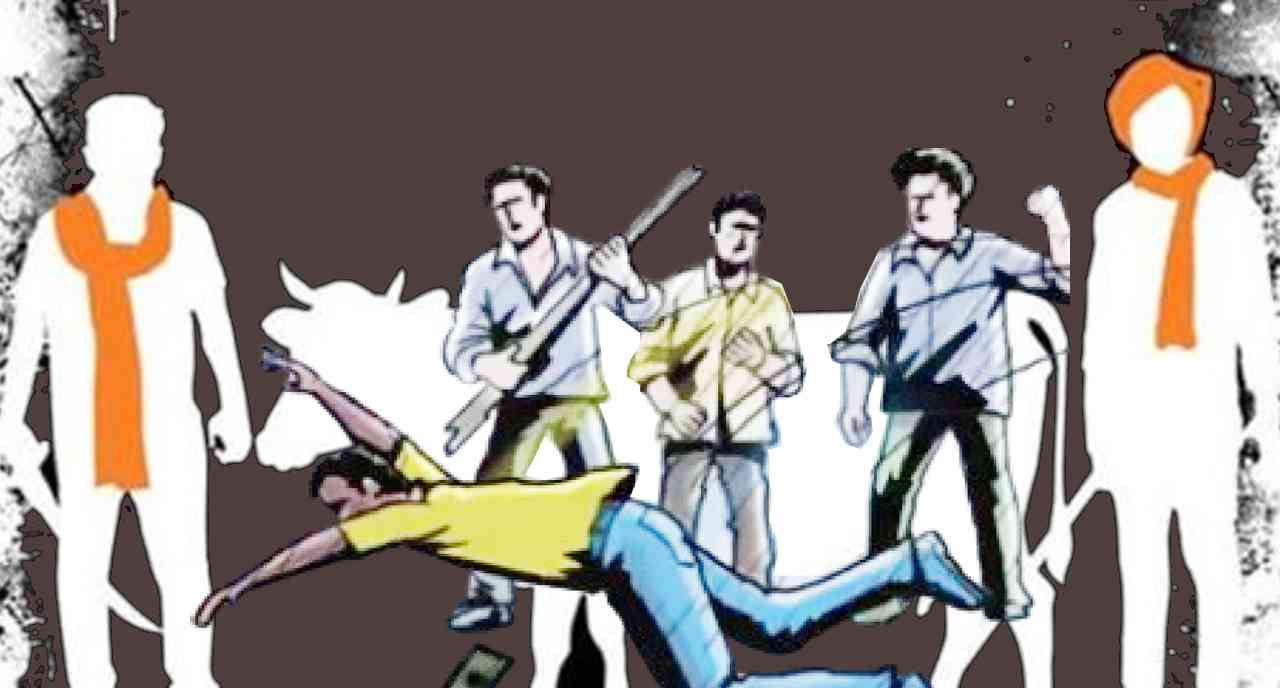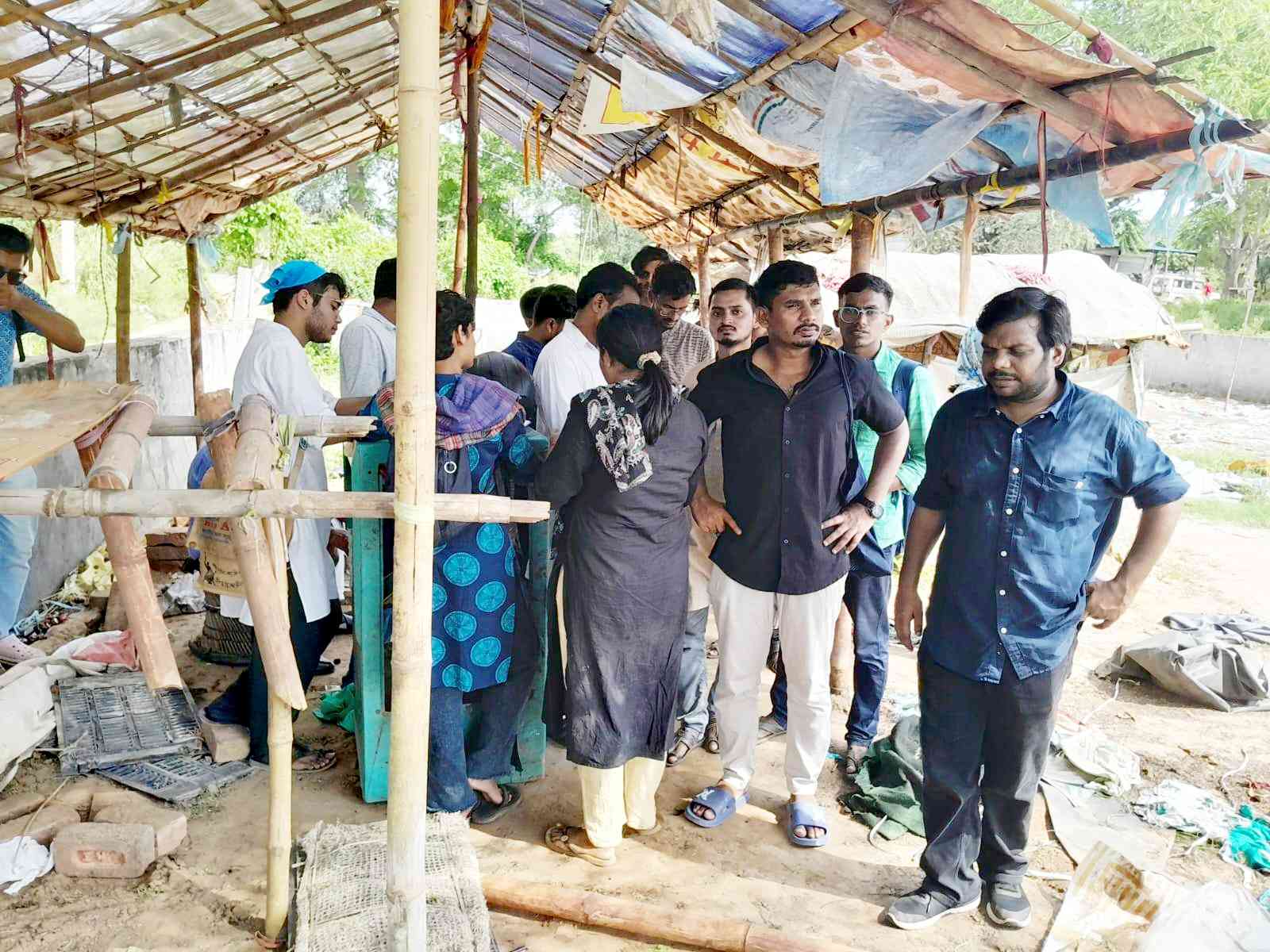Justice for Sabeer Mallik: Cow Vigilantism is Terrorism

To investigate into the brutal mob lynching of Sabeer Mallik, a 24-year-old migrant labourer from West Bengal who was killed in Haryana, fact-finding teams visited his native village in 24 Parganas, West Bengal and his temporary place of residence in Charkhi Dadri district in Haryana. Sabeer was from a landless family in the Sundarbans region of 24 Parganas, West Bengal, sought a better life in Haryana where he migrated with hopes of improving his family’s circumstances. He was married and had a young child, and he continued to support his family back home by sending remittances.
A team of CPIML-RYA members, including Ronojoy Sengupta (RYA State President), Nabakumar Biswas (District Leader), and Manas Chatterjee, visited Sabeer’s village in Bollartop in the Shibgunge area of Basanti block in 24 Parganas on September 6.
Sabeer Mallik was brutally murdered in Charkhi Dadri on August 27 by far-right vigilantes who accused him of carrying beef. The fascist vigilantes, self-styled "cow protectors" or "gau-rakshaks," lynched Mallik and mutilated his body. His murder highlights the extreme intolerance and violence fostered by these far-right groups against members of minority community with absolute impunity.
The village is now enveloped in mourning and disillusionment due to Mallik’s death. The fact-finding team noted that the murder has had a devastating impact on Mallik’s family. His mother, who lives in a remote and impoverished area of the Sundarbans, is left to care for three other young children. The family’s sole asset is a small, marshy piece of land, which offers little support for their survival. Despite the state's compensation to Mallik’s widow, the funds were largely misappropriated by local officials, leaving her with inadequate support. The mother is now dependent on the charity of local villagers and faces an uncertain future.
The compensation provided to Mallik’s widow was marred by corruption. Local political figures and officials syphoned off a significant portion of the funds, undermining the support intended for the family. The lack of transparency and accountability in the compensation process highlights systemic issues in the support mechanisms for victims’ families.
The village has experienced a mass migration of its youth seeking better opportunities elsewhere, often under conditions of extreme hardship. Migrant labourers like Mallik face brutal exploitation and violence in their new locales, despite their hopes for improvement.
The murder of Sabeer Mallik exemplifies the rise of religious intolerance and the violent enforcement of ideological beliefs. The involvement of vigilante groups and the impunity they enjoy under the current political climate underscore the need for significant social and legal reforms.
Fact-Finding Team in Haryana
On September 15, another fact-finding team comprising of students from JNU Students’ Union, AISA and leaders of CPIML visited the home of Sabeer in Hansawas Khurd in Haryana, where the brutal lynching took place. The team included JNUSU President Dhananjay, Prem Singh Gehlawat, Haryana State Incharge Of CPIML, Vinod Dharauli, Sultan Singh Badhra and CPIML Leader from Rajasthan Omprakash Jharoda.
The team witnessed an environment of fear and terror where all migrant Muslim families have left the area after the incident. Comrade Prem Singh said this shows that the state government and local administration has completely failed in their duty to protect the lives of the people, and the criminal elements have been strengthened due to state inaction.
JNU President Dhananjay called for a ban on Cow vigilante groups across the country who have been orchestrating violence and hate under the pretext of cow protection. He also called for immediate arrest of the perpetrators of mob lynching.

Charu Bhawan, U-90, Shakarpur, Delhi 110092
Phone: +91-11-42785864 | +91 9717274961 E-mail: info@cpiml.org

